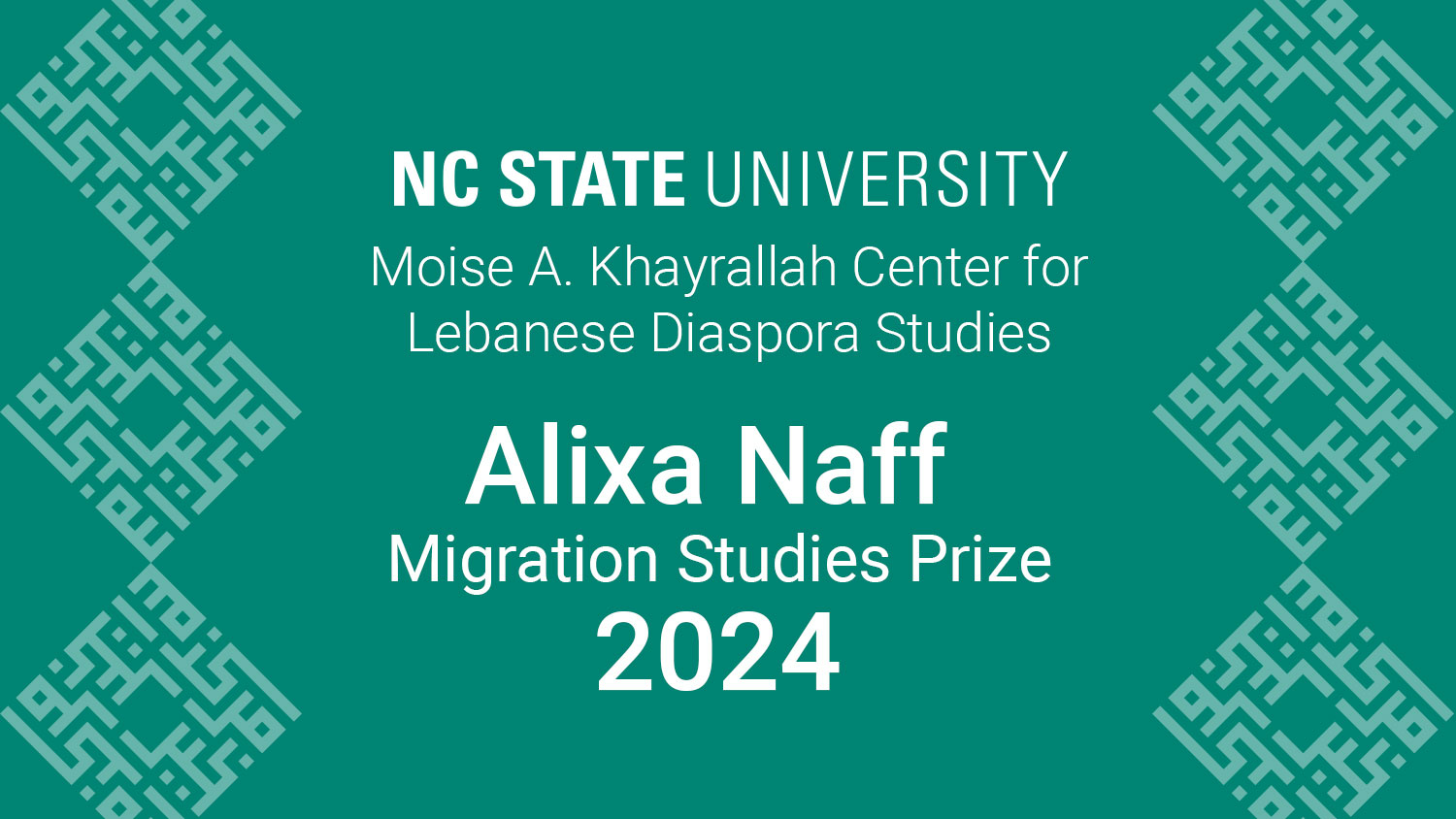Khayrallah Center Announces 2018 Prizes in Migration Studies
Scholar Award Winner: Dr. Camila Pastor

Camila Pastor de Maria y Campos is a professor at the History Division of CIDE (Centro de Investigación y Docencia Económicas) in Mexico City, which she joined after receiving her PhD in sociocultural anthropology from the University of California, Los Angeles. Her research in historical anthropology focuses on transnationalism, mediation, gender and hierarchy in Middle Eastern and Latin American colonial and postcolonial settings. She is the author of The Mexican Mahjar. Transnational Maronites, Jews and Arabs under the French Mandate, as well as numerous journal articles and book chapters. She recently directed an ethnographic census of the Muslim population in Mexico and is Associate Editor for the Oxford Encyclopedia of Islam in North America. She is working on a new book project on performance, prostitution and other spheres of suspect labor in the Mandate Mediterranean.
Camila Pastor was awarded the Khayrallah Prize for her book, The Mexican Mahjar: Transnational Maronites, Jews, and Arabs under the French Mandate. In making its decision, the committee noted that Pastor’s book is analytically and theoretically ambitious, sweeping in scope, varied in source material and methods, and most provocative in its positioning of Mashriqi migrants at the intersections of Ottoman modernity, French imperial designs, and national boundaries and projects. She skillfully stretches her narrative across oceans and transnational networks, and threads it finely–at times–between agency of the migrants and their encounters with racially hegemonic societies. It is a masterful attempt at writing an expansive history of Middle Eastern migrations across the long durée.
Scholar Award Honorable Mention: Dr. Alistair Hunter

Dr Alistair Hunter is Senior Lecturer in Health and Social Policy at the University of Glasgow. His scholarship to date has focused on ageing and dying in migration contexts. This he has investigated from a variety of perspectives, including housing needs, family relationships, health and social care, end-of-life rituals, and welfare policy. His research has led him to undertake fieldwork in North Africa, West Africa and several European countries. Alistair holds a Bachelors degree in Middle Eastern Studies from the University of Leeds, and earned his PhD from the School of Social and Political Science at the University of Edinburgh. His thesis won the 2013 IMISCOE Maria Baganha Dissertation Award for best PhD in the field of migration studies in Europe. At Edinburgh he subsequently held a British Academy Postdoctoral Fellowship (2015-18), examining the politics and geographies of Muslim funerary practices in Britain and France. He has published (with Eva Soom Ammann) an edited book entitled Final Journeys: Migrant End-of-life Care and Rituals in Europe (Routledge 2017), as well as several articles in leading journals. Alistair serves on the organizing board of the IMISCOE Research Network’s Standing Committee on Ageing Migrants.
Alistair Hunter was awarded an ‘Honourable Mention’ for his monograph, Retirement Home? Ageing Migrant Workers in France and the Question of Return, published by Springer in 2018. The committee was most impressed by the intimate ethnographic portraits and focus on the emotive and practical impact of migration on the connections between migrants and their families, a topic that has long been ignored.
Graduate Student Award Winner: Dr. Vladimir Hamed-Troyansky

Vladimir Hamed-Troyansky is a historian of the modern Middle East and the Ottoman Empire, with a focus on transnational and refugee migration. He is currently a Postdoctoral Research Scholar at Columbia University’s Harriman Institute. He received a Ph.D. in History from Stanford University in 2018. Vladimir is working on a book that examines how the Ottomans built a refugee regime and how the resettlement of Muslims from Russia changed the Ottoman Empire between 1860 and 1914. His research has been funded by the Social Science Research Council, the American Council of Learned Societies, and the American Historical Association, among others.
Vladimir Hamed-Troyansky’s Circassian Refugees and the Making of Amman, 1878-1914 (published in the International Journal of Middle East Studies) is a clipped, careful, tightly argued social history, expansive in its source base and using the history of migration to provide new insight into socio-economic history of Transjordan and Arab provinces of late Ottoman Empire. The author seamlessly weaves the historical threads of Ottoman law and bureaucracy, with stories of Levantine capital investments and the lives of the muhajir to convincingly explain the growth of Amman from a village heavily dependent on Bedouin economy to a growing city with regional and trans-regional economic and social connections.
Graduate Student Honorable Mention: Ms. Randa Tawil

Randa Tawil is a Ph.D. Candidate in the Department of American Studies at Yale University. Her interests broadly include transnational American history, migration and mobility studies, and critical race studies. Her dissertation, Tracing Empire: Race and Migration from Syria to North America examines the multiple routes Syrian migrants took to and through North America in the first half of the 20th century. It details the encounters between Syrians and the overlapping power structures along their itineraries and interrogates the ways these confrontations produced competing racial, gender and class formations for Syrian migrants. Her work is supported by the MacMillan Center, the Arab American National Museum, and the Giacometti Fellowship.
Her essay, Racial Borderlines: Ameen Rihani, Mexico, and World War I (published in Amerasia Journal) is a compelling reading of Rihani, and insightful intervention into race, whiteness and Middle Eastern migration, with an innovative engagement and intervention in history of capitalism.
- Categories:


